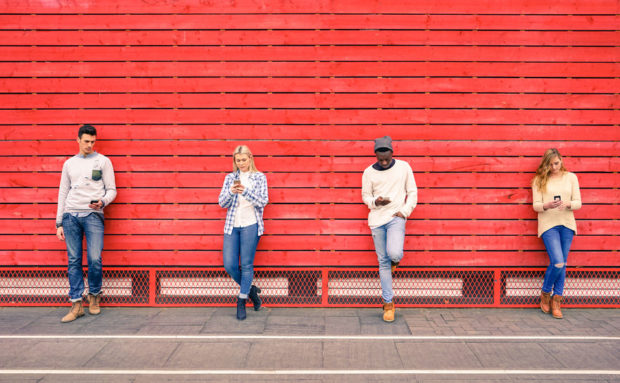Smartphones serve as ‘security blankets’ in awkward situations—study

INQUIRER.net Stock Photo
Researchers have concluded that smartphones may help people escape awkward social situations.
In their study, scientists from the University of California, Irvine (UCI) found that smartphones act as security blankets to help people feel at ease during awkward moments.
They published their study in Psychosomatic Medicine, a journal for biobehavioral medicine.
In the study led by John Hunter, a UCI PhD candidate in psychology and social behavior, the team found smartphones had a dual-sided effect on human interactions. The first side-effect tends to negatively impact the social behavior of humans, who would rather fiddle with their smartphone than talk to the person in front of them. On the other hand, Hunter’s team found a more positive effect in having a smartphone at hand.
Their experiment compared the effects of placing individuals, some with smartphones and the others without, in an awkward social situation. The ones with smartphones were divided into two groups. One group was instructed to use their smartphones normally, while the others were told they could keep their smartphone but could not use it during the experiment. These individuals were then placed in a room and made to feel excluded in a conversation between two people.
The researchers’ observations showed that those without a smartphone felt more stressed as they got excluded from a conversation. On the other hand, those with smartphones, whether they were using it or not, felt more at ease.
The study suggested the mere presence of a smartphone acted as a symbol of a person’s wider personal network. By knowing they were connected somewhere else, the participants with smartphones did not feel so isolated when excluded from a conversation. The smartphone sort of served as a “digital security blanket.”
Meanwhile, the participants without smartphones experienced sense of isolation, rejection and stress, which could be harmful to a person’s long-term health, according to co-author Sarah Pressman in a UCI statement.
So, while a smartphone may help diminish a person’s face-to-face interpersonal skills, it can also help more socially challenged individuals cope with awkward situations such as being surrounded by strangers in a social event. /ra
RELATED STORIES:
It’s harder to turn off robot begging for its life–study
Small dogs pee higher to disguise their size–study
People getting lower IQ scores, researchers claim in recent study